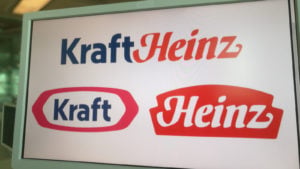In recent trading days, investors have been rotating from growth stocks to value stocks, creating a fertile ground for overlooked dividend stocks. With the spotlight having shone brightly on growth stocks during last year’s rally, many dividend stocks have been left in the shadows.
This situation has created a golden opportunity for investors looking for a robust income and potential appreciation.
Dividend stocks, especially those bypassed in recent months, are now trading at attractive valuations. As the market begins to recognize their underlying value, these stocks could prove to be strong performers moving forward.
In this article, I will highlight three such dividend stocks that are currently trading near their 52-week lows. Each of these dividend stocks offers substantial yields while retaining the potential for price appreciation.
To ensure a meaningful level of income, I have specifically chosen stocks with a dividend yield of at least 4%. By opting for high-yield stocks, you can benefit from an additional tailwind if interest rates see cuts, as investors are likely to shift towards these names in such a scenario.
Kenvue (KVUE)

Kenvue (NYSE:KVUE) is the world’s largest pure-play consumer health company in terms of revenue. It offers a wide range of health and wellness products, with its portfolio including well-known brands in personal care, over-the-counter medications and baby care products.
Although Kenvue’s presence in the public markets is relatively new, having gone public just last year, its legacy in consumer health is well-established.
Since it was spun off from Johnson & Johnson (NYSE:JNJ) in May 2023, Kenvue’s shares have underperformed notably, registering losses of 31%. In fact, the stock just hit new 52-week lows in July.
The most significant market concern appears to be that Kenvue operates in an ultra-competitive market with numerous players fighting for consumer attention and market share. That said, Kenvue’s extensive brand recognition, with household names like Listerine and BAND-AID, positions it well to navigate these competitive pressures.
Evidently, despite the market’s concerns, the company managed to grow organic sales by 5% last year while retaining its adjusted operating margin at an attractive 22.4%. In the meantime, following its prolonged decline, the stock offers a compelling dividend yield of 4.4%, providing investors with a substantial level of income. At 16X this year’s expected earnings per share, the possibility of share price appreciation is decent too.
TELUS Corporation (TU)

Telus Corporation (NYSE:TU) stands out as a leading telecommunications company in Canada, boasting strong competitive advantages and a resilient business model. The vital nature of its services, such as wireless and internet connectivity, ensures steady demand and makes Telus relatively recession-proof.
The company’s stable business model is evident in its consistent revenue growth over the past decade, registering a compound annual growth rate of 5.8%. Telus increasing its dividend every year for the past 20 years also reflects the merits it enjoys as a telecom provider, including generating stable cash flows regardless of the underlying state of the economy.
In July, Telus’s stock hit new 52-week lows, pushing its current dividend yield to 7.2% — the highest yield in over 22 years. At its current price level, Telus provides investors with an attractive entry point into a high-quality operator with a proven track record.
The mix of a strong, stable business and a hefty dividend yield makes the stock a compelling pick for those seeking both income and growth potential in the telecommunications sector.
Kraft Heinz (KHC)

Kraft Heinz (NASDAQ:KHC), a favorite stock of legendary investor Warren Buffett, is a powerhouse in the global food and beverage industry. The name is renowned for iconic products like Heinz ketchup, Kraft macaroni and cheese and Oscar Mayer meats.
Despite the strength of its brands, Kraft Heinz’s stock has gone nowhere over the past five years, as meaningful growth has been absent during this period. In fact, in July, the stock hit new 52-week lows.
Nevertheless, Kraft Heinz’s brands continue to produce robust cash flows, enabling it to pay a solid dividend, currently yielding around 4.86%. Today, the stock looks particularly cheap, offering an attractive entry point for value-oriented investors. At a forward P/E of just 11, Kraft Heinz’s valuation currently sits at a multi-year low, providing both a margin of safety and upside potential in case of a valuation expansion.
In the meantime, the stock remains backed by Warren Buffett’s Berkshire Hathaway (NYSE:BRK-A, NYSE:BRK-B,). The legendary investor’s relationship with the company spans nearly a decade, and given that no stake sales have taken place recently, it’s fair to assume that this suggests Kraft Heinz’s intrinsic value is higher than what the share price suggests.
In any case, at its current yield and valuation, Kraft Heinz seems to be one of the better picks in the market for those looking for beaten-down dividend stocks.
On the date of publication, Nikolaos Sismanis did not hold (either directly or indirectly) any positions in the securities mentioned in this article. The opinions expressed in this article are those of the writer, subject to the InvestorPlace.com Publishing Guidelines.
On the date of publication, the responsible editor did not have (either directly or indirectly) any positions in the securities mentioned in this article.
Nikolaos Sismanis is a professional research analyst with five years of experience in the field of equity research and financial modeling. Nikolaos has authored over 1,000 stock-related articles that focus on uncovering deep value opportunities, identifying growth stocks at reasonable valuations, and shining a spotlight on overlooked international equities.








